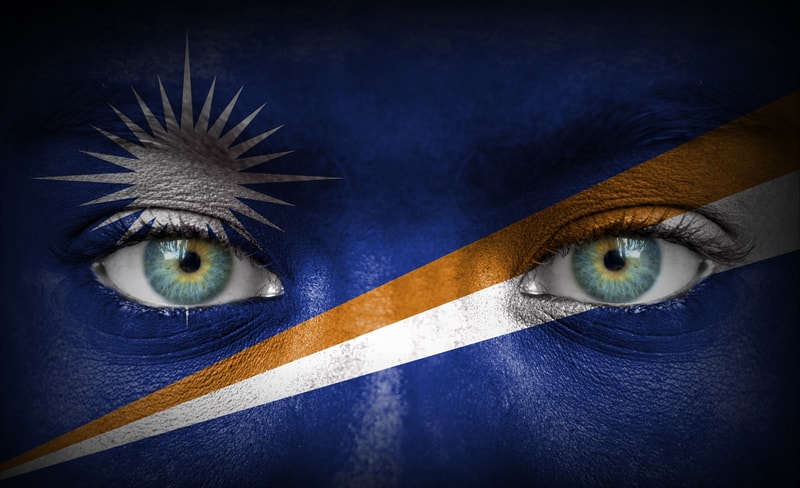In its effort to somehow find independence for the local monetary and fiscal policies, the Marshall Islands has released a crypto which will be used as the national currency from here on out. But, according to the regulation, is it an asset?
The government announced the news via an essay from David Paul, the Minister in-assistance to the President of the Marshall Islands.
Marshall Islands’ crypto regulation
The essay mentions how ecstatic the local government is to finally move to a personalised monetary policy in the country and not rely on foreign currency exchanges to base their decisions upon.
It is quite easy to understand the Minister in this sense as the US is struggling to maintain the relevance of the dollar in their economy of 250 million citizens, it’s only imaginable how hard it is for an economy of just 50,000 citizens in the Marshall Islands.
With the addition of the nationalised cryptocurrency instead of the USD the country is currently using as its fiat, the lawmakers of the Marshall Islands will have much more access to affecting the local economy whenever it requires.
Furthermore, they’ll be able to influence the national reserve with impunity from the United States. It’s never a good idea to rely on others’ monetary policy as your own, as every country has a different reality than the others.
Mr. Paul mentioned in his essay – which also examines the local crypto regulation – that the emittance of the national currency is going to be much easier in the years to come. Printing new banknotes was always extremely expensive for the local population and it always introduced a slight recession in the country. With the help of blockchain technology, there will be next to no costs associated with further emittance as foreign jurisdictions stock up on the nation’s currency.
Is this an asset or a liability?
Looking at it from a cryptocurrency fan’s perspective it’s as positive as it can get. A globally recognised sovereign nation has switched to cryptocurrencies as its daily financial resource. That is the ultimate goal of every blockchain developer and cryptocurrency company.
Why is it a liability?
However, looking at it from an economist’s perspective, there are several issues that this new addition may cause for the Marshall Islands.
The first issue is the distribution of these currencies. The local population needs to be enticed enough to hand in their USD in exchange for the local crypto, while other countries need to be convinced to hold a small reserve of these currencies if the Marshall Islands expect to ever be relevant in the world trade agreements.
The distribution of the currency becomes even harder when foreign nations will need to verify it as a legitimate monetary resource. Especially since the Marshall Islands is slowly but surely becoming a gambling hub for companies, thus opening up many more channels for the distributions of their nationalised crypto.
According to David Rotter, the Senior editor of the Playamo gambling blog, the issues are going to be persistent in the first few months before the global community becomes adjusted to such a major change:
“It needs to be considered that dozens and dozens of gaming companies are registered in the Marshall Islands, therefore they have their HQ there as well as a bank account where most of the profits go to and from.
Considering that they cater to international customers, the companies will have to either make a deal with the local banks to continue accepting their deposits in dollars or somehow negotiate a beneficial exchange rate for the national cryptocurrency.
If the exchange rate is not stable, dozens of companies could go bankrupt simply because most of the profits will be lost during the exchange.
The best-case scenario would be to make partnerships with global banks which will allow the conversion of any currency into Marshall Island’s local currency for the final transaction. That way, the companies could at least somehow guarantee a predictable profit margin. Other than that it will be very hard, especially for those that are publicly or privately listed”.
The issue that Rotter outlined in his comment about the news is just scratching the surface, but as you can see there is a very clear solution. It’s obvious that the government has considered any and all potential problems with such a large change, and has delegated the insurance of stability on their contracted company who actually made all of this happen.
When talking about liabilities, it’s important to note only the major ones, and the currency exchange ratio is currently the only big one. Other than that, the new nationalised crypto is nothing but an asset to the Marshall Islands, especially it’s citizens.
Why is it an asset?
One of the primary reasons for the new crypto being an asset is the government’s understanding of the blockchain. Yes, revolutionary in a sense.
The government in the Marshall Islands has specified that user anonymity is going to be protected with their new cryptocurrency due to the values and basis of the blockchain technology.
The essay even mentions how important it is for the users to disclose personal information at their own discretion regardless to whom they disclose it to.
However, should banks adopt this new currency it may be mandatory to disclose the info in order to have a cohesive credit score for things like mortgage and business loans.
Overall though, the government of the Marshall Islands saw the future in privacy tokens and seems to be complying with their underlying values fully.




